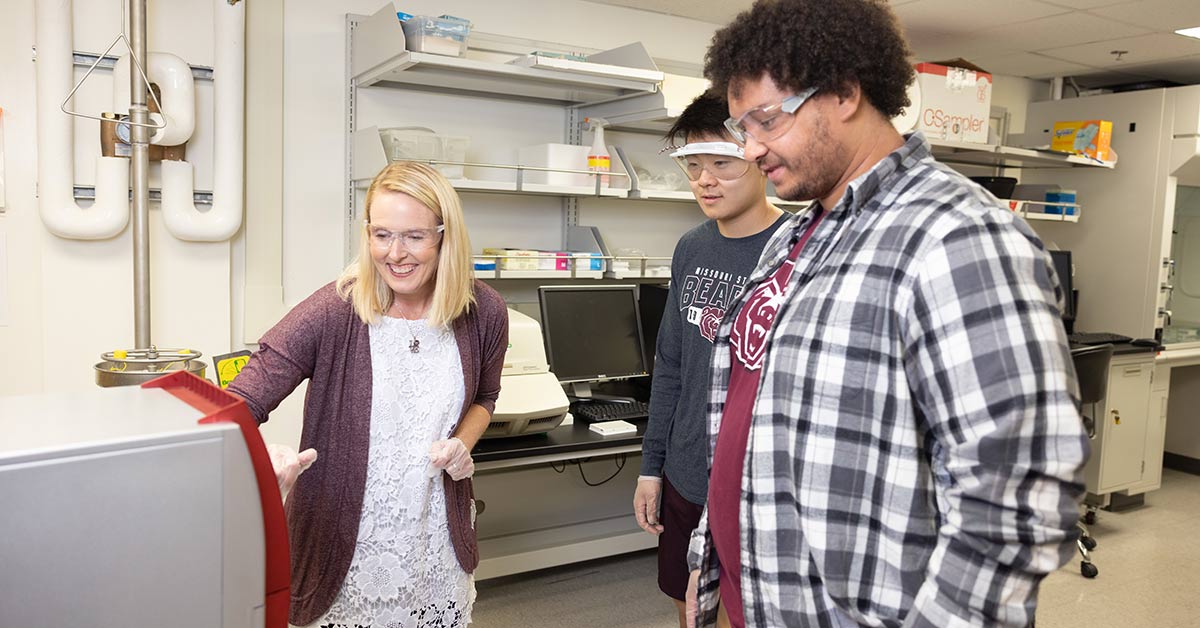What courses did he need to take at his community college?
How many credit hours could he transfer?
Which major should he choose at Missouri State?
“Being a transfer student can be intimidating,” Rexroad said. “There’s so much you don’t know at first.”
Shaping his path to Missouri State
Two things convinced Rexroad to become a Bear: Campus life and transfer credit.
As a high school student, Rexroad visited Missouri State in person.
He was sold.
“I was like, ‘Wow, this campus looks (great) and the people here are so welcoming,’" Rexroad said. “I felt it was a place I could be at.”
After graduating high school, Rexroad attended Metropolitan Community College-Longview in Kansas City for a year.
Working with his advisor at Longview and David Johnson, academic advisor and retention specialist in the McQueary College of Health and Human Services, Rexroad developed a plan.
“Before I even got done at Longview, I came to Missouri State and met (David),” Rexroad said. “He goes, ‘Okay, here’s what you need to go do at Longview before you come here, to make sure everything transfers.’”
Rexroad transferred 30 credit hours to MSU.
“MSU had really good equivalencies and transfer (power),” he said.
‘If you love science, it’s the best major possible’

Rexroad wants to become a genetic counselor.
“It’s a one-on-one clinical experience where you talk to people about their risk for genetic diseases, like cancer,” Rexroad said.
Genetic counseling requires you to have a master’s degree.
To earn a master’s degree, Rexroad first needed a bachelor’s degree (major) that had a strong base in science.
“The transfer experience was amazing. (MSU) makes it so easy to find what you need.”
“When I met with David Johnson, we looked over prerequisites for genetic counseling programs and he said, ‘You would fit really well as a cell and molecular biology (CMB) major,’” Rexroad said.
For most students, the CMB major is the “stepping stone” toward medical school or other professional health care programs (like genetic counseling).
“If you’re someone who has a love for science, it’s the best major possible,” he said.
Rexroad loves everything about his major.
He’s learned so much in classes like BMS 231 (Human Genetics), BMS 307 (Human Anatomy) and BMS 521 (Molecular Cell Biology).
“The amount of application I've gotten from those classes has been outstanding,” he said.
He receives close guidance and mentoring from professors like Dr. Amanda Brodeur and Dr. Joshua Smith.
Rexroad even job shadows under Robin Troxell, a current genetic counselor in Springfield.
Advice for transfer students
Ask Rexroad for advice or support and he’ll do everything he can to help.
It’s one reason why he became a peer counselor.
Rexroad shared three keys to success for transfer students.
- Don’t be nervous: “There’s still this huge stigma where community college is easier than a university and you’re going to struggle. Don’t be nervous. Be comfortable with what you’ve learned so far.”
- Get to know people: “You hear students say, ‘I had this tight-knit group of friends at my community college and I was able to talk to my professors.' You can do the that here. You can walk to (your professors’) office and they’ll talk with you, whether it’s school related or not.”
- Integrate yourself: “Wherever you go, you can make an impact and be part of something.”